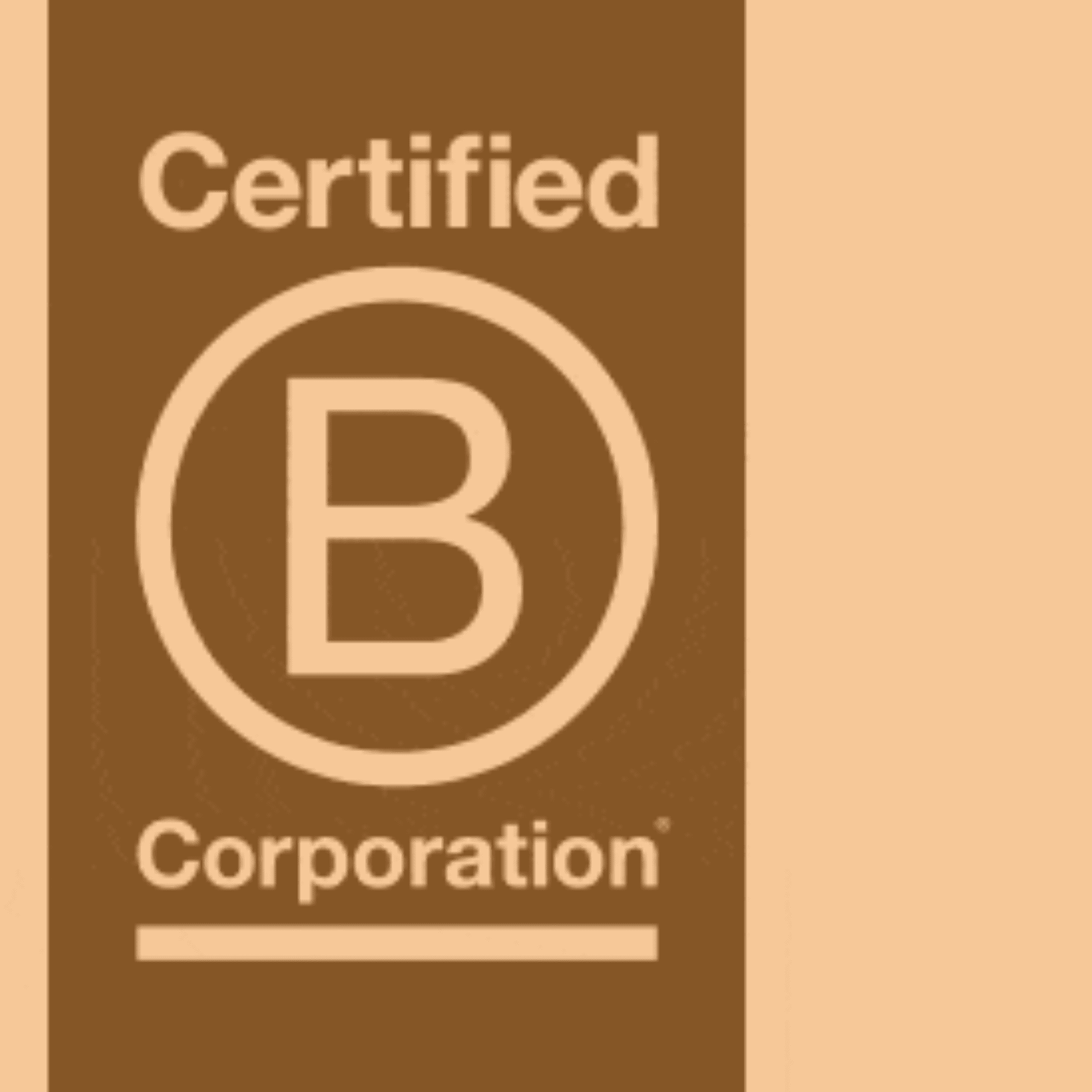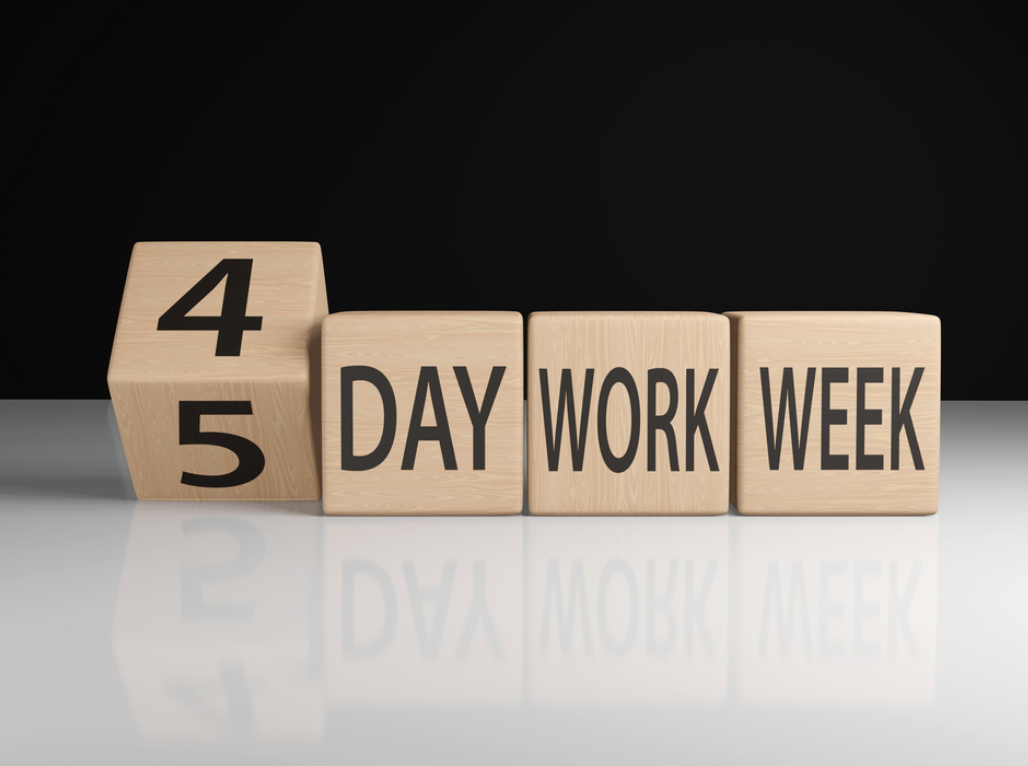This is what better business means to me.

Recent posts

From Firefighting to Innovating: 4 Strategies to Carve Out Space for Creativity
Zoe Aitken • 29 August 2024

COORDINARE’s Four-Day Week Success: 3 Powerful Lessons You Need to Know
Charlotte Rush • 29 August 2024

Everything I thought I knew about Work was Wrong: My Eye-Opening CEO Journey
Tina McIntosh • 1 August 2024
March is BCorp month. At Inventium, we’re proud to be one of thousands of Certified B Corporations, meaning we meet the highest standards of verified social & environmental performance, transparency, and accountability.
To help promote BCorp month, I received a PR kit from BCorp. It suggested posing this question to customers and connections to start a conversation: What does better business mean to you?
But before I pose this question to you, I decided to first reflect on it myself.
This is is what better business means to me.
It means being excited to get out of bed on Monday morning.
Before I started Inventium, I worked as a consumer psychologist for a big advertising agency. I loved what I did. Until I didn’t. I remember one Sunday evening, a feeling of dread began to creep through me because tomorrow was Monday. And Monday was the start of the working week. This sense of dread became a weekly occurrence, and a couple of months later, I handed in my resignation to my boss. I didn’t have a job lined up to go to, but I promised myself that I would never work in a job where it felt like an effort to get out of bed on Monday. We spend about a third of our waking adult lives at work. And that’s far too big a time commitment to be doing something that doesn’t make you happy.
It means having an impact that is far beyond the size of the number of people in your team.
Over the last 15 years of running Inventium, the team has fluctuated in size from just one (me!) to as large as 20. We are currently at 10. For me, that’s the sweet spot. I love having a team that fits around one lunch table. I love having a team where I know the name of their kids and partners and how they like their coffee. I love the intimacy that comes from having a small team. But at the same time, a small team can mean having a small impact. So several years ago, when we deliberately decided not to grow headcount, every strategic decision we have made since then has been based on having impact that is far beyond the fact that we are only ten people. One of our company goals is to reach 1,000,000 people with our tools, tips, and strategies by June 2022. We’re currently sitting at just over 780,000 people and we are on track to reach this goal well before our deadline.
It means having no trust issues when your team are fully remote.
When employees around the world were sent home last March, I was surprised, perhaps naively so, at the number of managers who had trust issues. I would constantly hear from various people about how they would do things such as send emails at all hours to demonstrate they were working and being “productive”. I would read articles about managers who were desperate to get staff back to the office. And I remember thinking: why would you employ someone whom you didn’t trust?
We obsess over recruitment at Inventium. Successful applicants have been through 7-10 rounds of recruitment, assessment, and testing before we offer them a job. But when they do finally start with us, because we have spent so much time getting to know them, trust is assumed. And I believe this is how it should be. Don’t hire someone that you don’t trust. And if you don’t know if you can trust them, spend more time getting to know the person before you offer them a job.
It means that work-life balance isn’t something you think about.
I love what I do. And a large part of my self-identity is wrapped up in my work and the impact I try to have through how I spend my days. I want to be a great role model for my daughter who has just turned seven. I want her to grow up knowing that work can be fun and deeply satisfying – and not just something you clock on and clock off from.
I think that work-life balance is an artificial concept created by people who probably don’t love what they do or who are dealing with an unreasonable workload from their manager – or perhaps a bit of both. And it’s worth asking yourself the question: what would have to change in your work life for you to not have to care about work-life balance?
It means profit sits below purpose, people, and product in the business hierarchy.
For the first ten years of running Inventium, I never set financial targets. We never even had a budget. This is despite turning over millions of dollars every year. While part of me feels mildly embarrassed to admit this, the decision reflected my values. Starting a business was never about money. It was about doing work that had a big impact and providing my team with the best workplace they had ever worked in.
A few years ago, we finally started setting financial targets to help provide more clarity over team and individual goals and spending. But it’s only one of five company goals that we have. For me, making a profit is a means to an end. More net profit = more flexibility in the choices I make as a business owner. When net profit is healthy, it’s easier to be generous with salaries, bonuses, team lunches, and random acts of kindness. So while I value making a healthy profit, it’s because it allows me to create an even better place to work.
If you have made it this far, I’d love to know: what does better business mean to you?